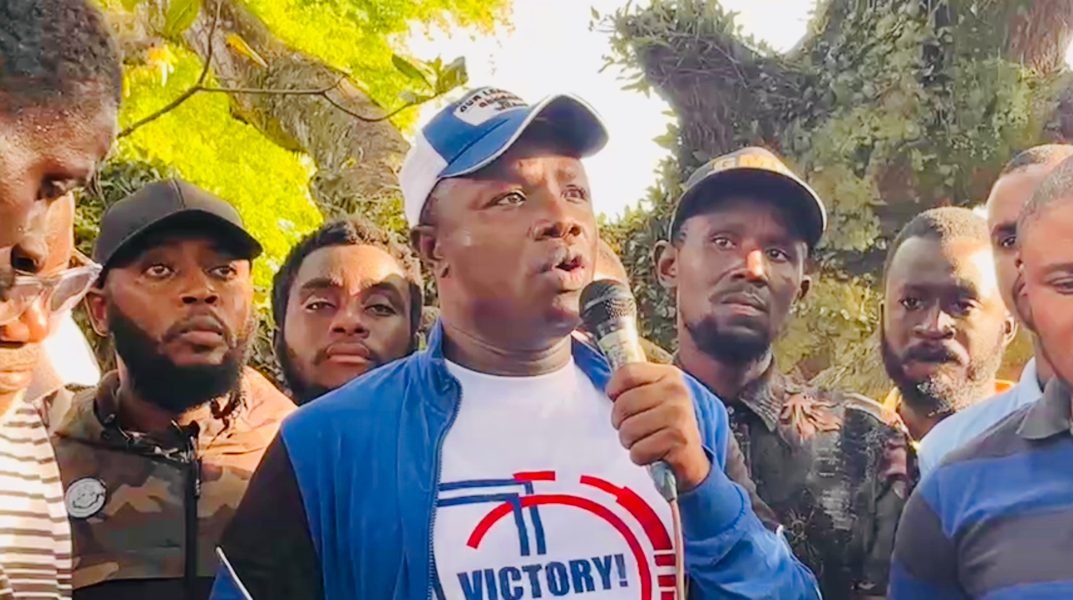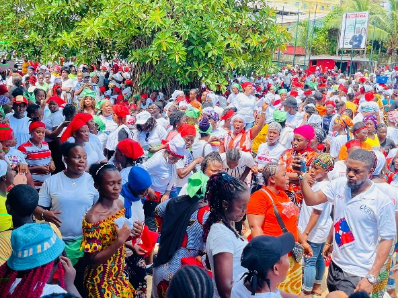Key stakeholders, to include the Government of Liberia (GOL), the private sector as well as civil society actors, on Thursday, June 16, 2022 in Buchanan, Grand Bassa County commenced an interactive session on the draft National Action Plan on Business and Human Rights in Liberia.
The technical working session, according to the Human Rights Officer at the Office of the High Commissioner for Human Rights in Liberia, Melvin Nyanway, is to, among other things, support an on-going regional summit on business and human rights currently taking place in Senegal.
Liberia, as part of the arrangement, will make its case on the issue on Friday, June 17, 2022.
Speaking at the opening session, the experienced Human Rights advocate emphasized that the current working session will discuss carefully the Draft National Action Plan on Business and Human Rights as well as challenges, including the way forward, for said key national instrument.
As significant as the document is, Nyanway told the gathering that the United Nations office of the High Commissioner for Human Rights in Liberia is observing the process. “We are with you together in this endeavor, and we hope that, with your full and active participation during the technical working session, the document upon its finalization will be a true and comprehensive reflection as well as representation of Liberia,” he added.
Also speaking at the program was the Executive Director of the Independent National Commission on Human Rights, Urias Pour, who emphasized that the technical working session is very important, adding that Liberia has every reason to adopt the United Nations Guidelines on Business and Human Rights, especially considering the past history and implications of businesses during the civil crisis as well as the human rights violations associated with how business entities interplay.
Pour urged the stakeholders to take the discussion very seriously because it is the National Action Plan that will be used to guide all stakeholders to monitor effectively and ensure that the government does the needful by implementing the policy.
According to him, the government’s representation at the technical meeting is a clear demonstration that it is committed to ensure that business and human rights are incorporated in all business-related activities and or agreements in Liberia.
The INCHR, he pointed out, is under direct mandate to protect and promote human rights and is working along with stakeholders to ensure that the National Action Plan is adopted and fully implemented in order for stakeholders to also serve as guarantors of the process.
Providing background about the process was the government’s lead representative on the Business and Human Rights steering Committee and Assistant Justice Minister for Economic Affairs, Meo Beyan, who disclosed that the process has been long coming, dating back to 2009 when the government signed the United Nations resolution.
According to him, the government has committed by way of treaty agreement to ensure that UN body principles on business and human rights are upheld within the borders of the country.
As part of the government’s effort on the issue, he said in 2011 the government started to domesticate the policy; however, it has been slow for some unspecified reasons.
But consistent with the government’s treaty obligation, in 2018 it reactivated the business and human rights initiative since, in fact, it was new in the country, Assistant Minister Beyan informed the stakeholders.
In 2019, he indicated further, a major stakeholders meeting, comprising the government, private sector including civil society representatives, was held in Buchanan, Grand Bassa County, the first tangible action by the government to ensure that a roadmap was crafted, which will ultimately lead to the drafting of the National Action Plan.
Following three days of intensive stakeholders’ engagement, the body, Beyan disclosed, achieved both the drafting of the roadmap document, including the budget which was also key to the process.
However, the process was halted in 2020 and 2021 due to the COVID-19 global pandemic, but taking into key consideration the development partners’ involvement and interests, they again, in 2022, reactivated the process with practical steps, including a series of meetings and consultations in Ganta and Monrovia in a drive towards achieving the National Action Plan, he noted.
Initially, he pointed out, a steering committee chaired by the Ministry of Justice and co-chaired by the Ministry of Labor with advisory role from the Independent National Commission on Human Rights, including the civil society, was constituted with the aim of working to ensure that the National Action Plan was drafted, as well as a roadmap, on how it should be achieved.
Currently discussions surrounding the technical working session is geared toward ensuring that they achieve the final copy of the National Action Plan on Business and Human Rights in Liberia.
He was also quick to point out that they are carrying out their activities in link with other countries like Ghana, Kenya and Uganda, especially by sharing best experiences.
The document, following full completion, will be received by the cabinet for approval, regional consultations and implementation.
It is also geared towards receiving the cabinet’s full endorsement, which will eventually become a policy that will hold businesses operating in Liberia accountable.
Among other things, the National Action Plan is the Government of Liberia’s policy action to ensure that the rights of all persons are respected by businesses.
It also applies to all businesses, regardless of their size, sector, operational context, ownership and structure.
The document, when enforced, is expected to be reviewed periodically under the guidance of the National Steering Committee. The committee is expected to ensure accountability of the various stakeholders charged with implementation.
Additionally, it will also guarantee that the NAP implementation process remains aligned to contemporary practices and developments in the field of business and human rights.
The United Nations guiding principles on Business and Human Rights (UNGP) gives a framework on how government and businesses are to protect and respect human rights, including what mechanisms are to be put in place to reduce, mitigate and redress business-related violations.
The action plan seeks to operationalize these principles in practical, real and specific terms, exploring how government discharges the duty to protect in the context of business and how businesses operationalize the duty and respect, but more importantly how to ensure access to remedy for individuals or communities adversely affected by business operations.
Moreover, the plan also provides the bench mark for measuring progress and achievements in the implementation process by allocating roles and responsibilities for each stakeholder group in order to advance human rights and business in Liberia, while seeking to develop strategies for implementing human rights and business imperatives in Liberia with the aim of reinforcement under three pillars of the UNGP: The State Duty to Protect Human Rights, The Corporate Duty To Respect Human Rights and Access To Remedy.







